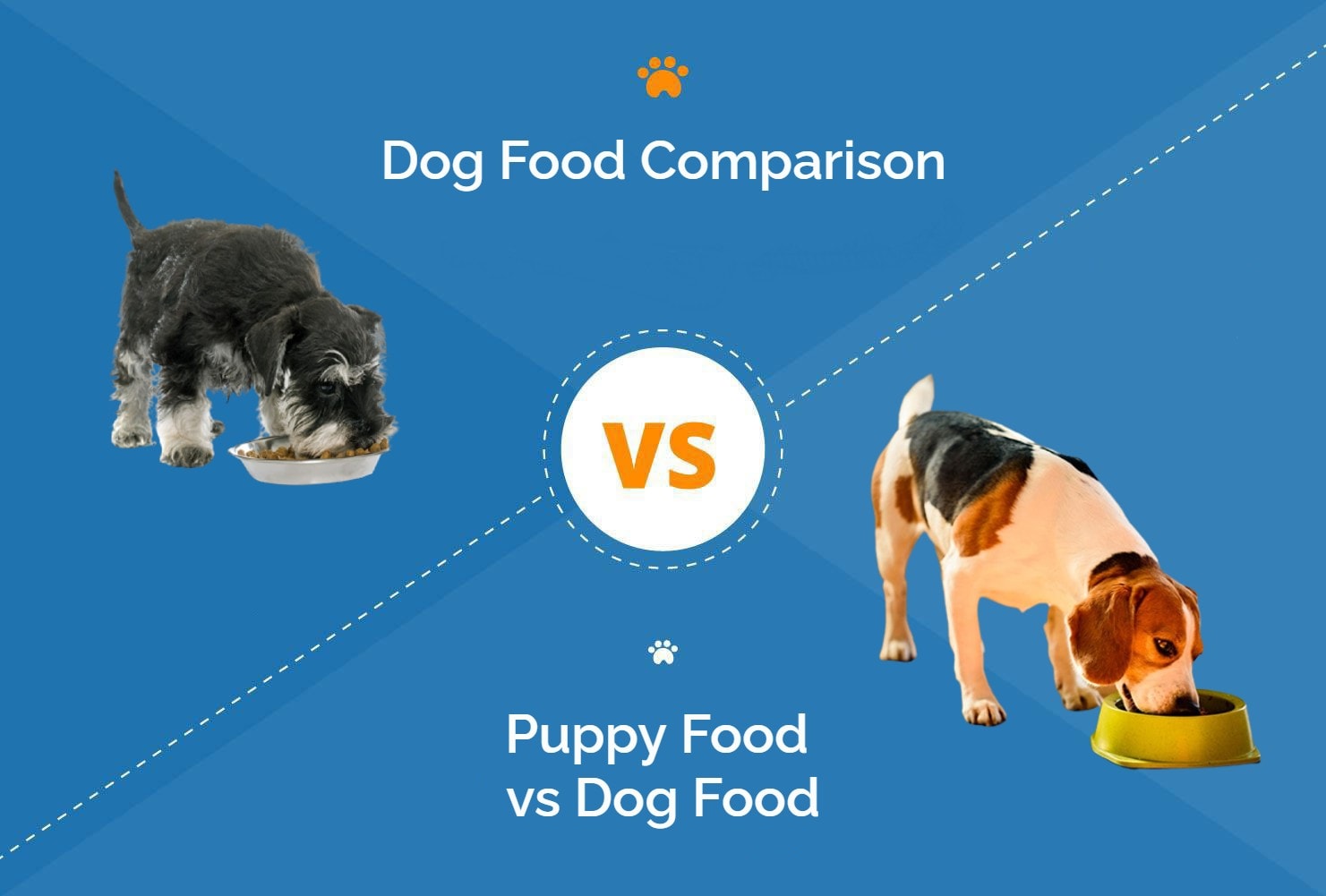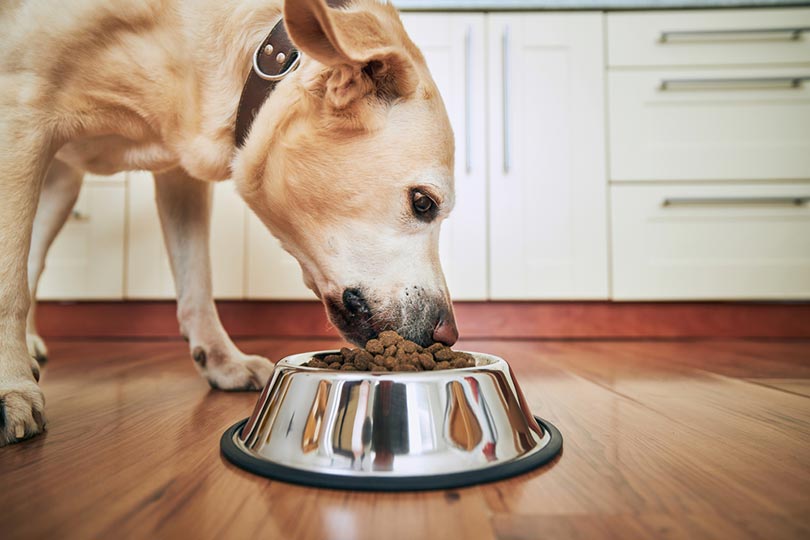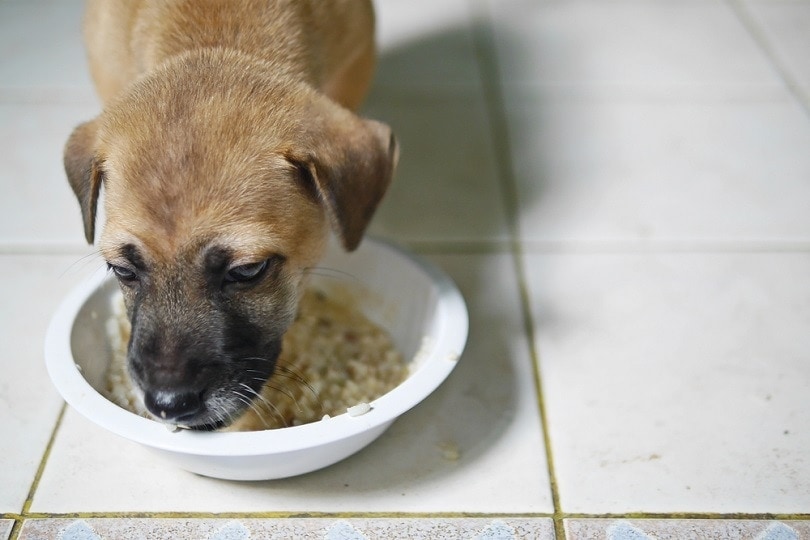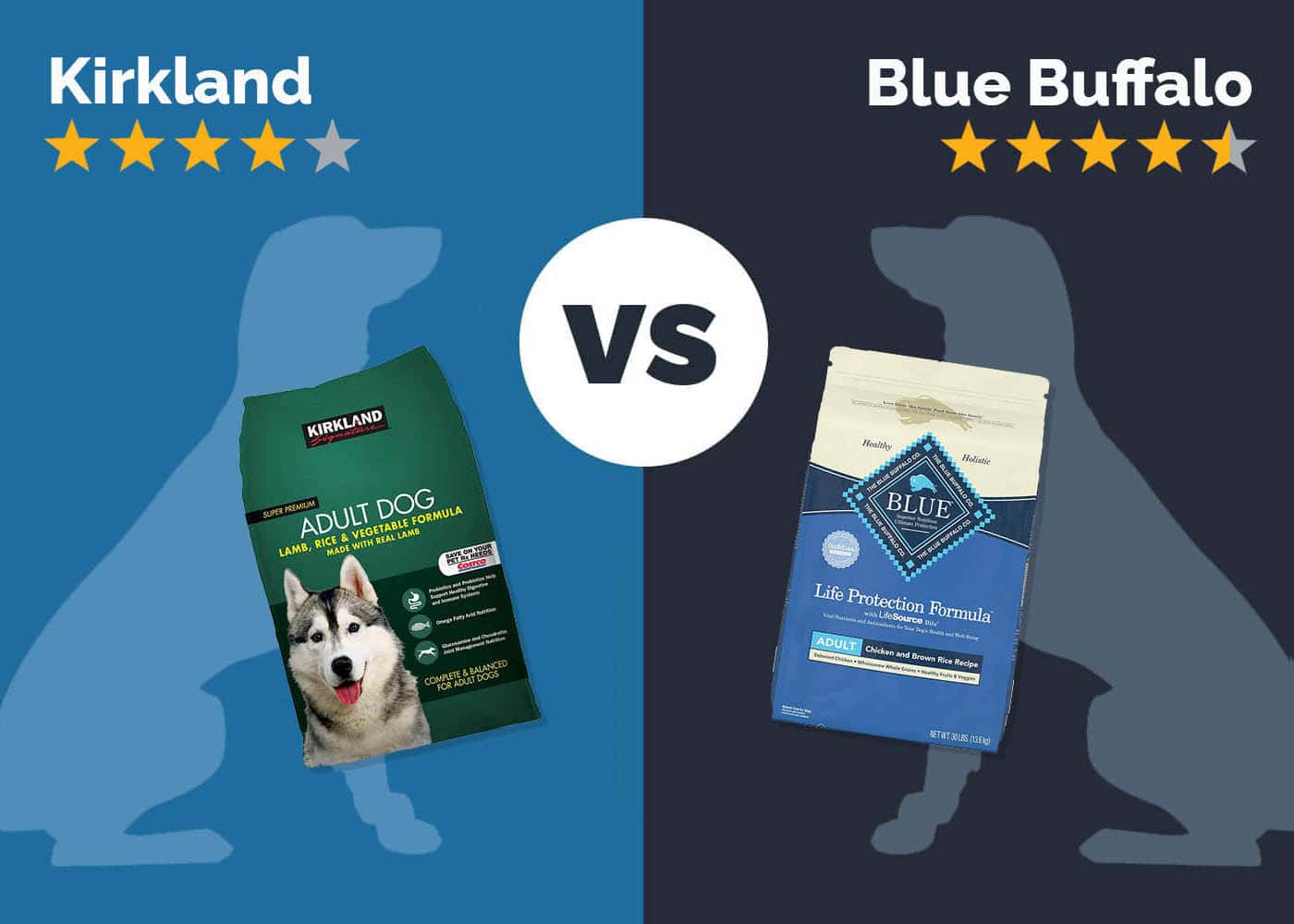Puppy vs Adult Dog Food: How Are They Different?

Updated on

Click to Skip Ahead
Review Summary
Limited ingredient, grain-free, senior, large breed, toy breed, puppy…the options for dog foods can seem endless. There are numerous varieties within each brand, and dozens of brands, making it hard to determine what’s best.
Fortunately, puppy food vs. adult food is a little easier to understand. Puppy food is for puppies up to one year, pregnant dogs, and lactating dogs. Adult food is appropriate for all adults, regardless of breed, as a maintenance diet. Find out the key differences between the two.
At a Glance
Let’s look at the key points of each product.
- High calories
- Special nutrient balance for growth
- Protein
- DHA
- Portion sizes
- Fewer calories
- Lower in fat content
- Less protein
- Larger portions
Overview of Puppy Food:

Puppy food is specifically formulated for puppies up to one year, pregnant dogs, and lactating dogs. These recipes have a lot of nutrients packed into small bites, including a higher protein content and fat content, to ensure your pup gets all it needs for healthy development in portions designed for a smaller stomach. Generally, puppies require almost double the calories that adult dogs of a similar size do, but they have a much smaller stomach.
Puppies also need between 22% and 32% of their daily intake from protein, compared to 18% to 28% for adult dogs. Puppies need the full spectrum of amino acids for all their developmental needs, which include tryptophan, phenylalanine, lysine, methionine, valine, threonine, isoleucine, leucine, arginine, and histidine. Without these nutrients, a puppy may struggle to maintain its optimal rate of growth, which is why a complete and balanced puppy food is so important.
- High protein content
- High fat content
- Nutrient-dense
- Temporary
Overview of Adult Food:

Adult dog food is designed for maintenance for adult dogs (over one year of age) of any size or breed. While some diets have specialty recipes for different conditions, such as sensitive stomach, skin and coat health, or high activity, they’re all complete and balanced for adult dogs. These special formulas, along with senior food, merely have added ingredients that have benefits for the specific condition they address.
The same is true of breed- or size-specific adult foods. These foods may have special ingredients to address common issues with these breeds, such as ingredients to promote a healthy coat in long-haired breeds. For size-specific foods, the kibble may be smaller or larger to make it more comfortable and palatable for different breed sizes. But ultimately, these foods are all adult maintenance diets.
Compared to puppy food, adult food has lower protein and fat content, lower calories, and typically, larger portion sizes for larger adult stomachs. This is because higher protein and fat content could cause digestive upset in adult dogs, and higher calories could contribute to weight gain.
- Conservative calories
- Appropriate for all breeds, sizes, and adult stages
- Nutritional content will vary depending on brand of food
What Are the Differences Between Them?
Nutrition
Puppy food has more nutritional value than adult food, for a good reason. Puppies need a specific balance of nutrients to support their growth and development. Because of this, feeding adult food to a puppy would rob it of vital nutrients. Conversely, feeding an adult dog puppy food would give it too many calories, too much protein, and too much fat for optimal health.
Price
The cost of puppy food and adult food can vary wildly by brand or formula. Even comparing pound for pound, the portion sizes are different for puppy food than adult food. However, if puppy food is more expensive, it’s only fed for the first year of the puppy’s life or for a pregnant or lactating dog, which is a short period of time.
Variety
There’s plenty of variety for puppy food. You can choose different brands, product lines, recipes, formulas, and protein sources, as well as recipes for small breeds or specific breeds. Still, puppy food doesn’t have nearly the selection as adult food since the latter encompasses all types of adult maintenance food. Specialty diets aren’t usually offered in puppy food, so they’re limited to adult maintenance foods.

Conclusion
Both puppy food and adult dog food have their place in your pet’s life. Puppy food has higher calories, protein content, and fat content, which is appropriate for a growing puppy or pregnant or lactating dog. Adult food is intended for all dogs over one year, regardless of the specific recipe or formula. Neither is better than the other—each of them is designed to address the needs of a dog at different stages of its life.
See Also:
Feature Image Credit: Top: Puppy Food (Image Credit: Cynoclub, Shutterstock), Bottom: Adult Dog Food (Image Credit: Przemek Iciak, Shutterstock)















